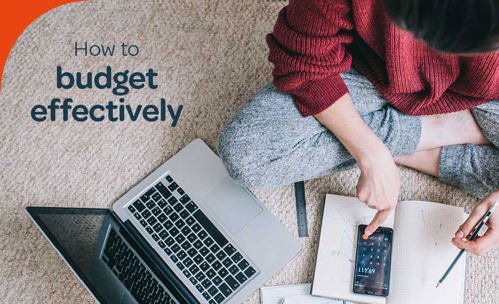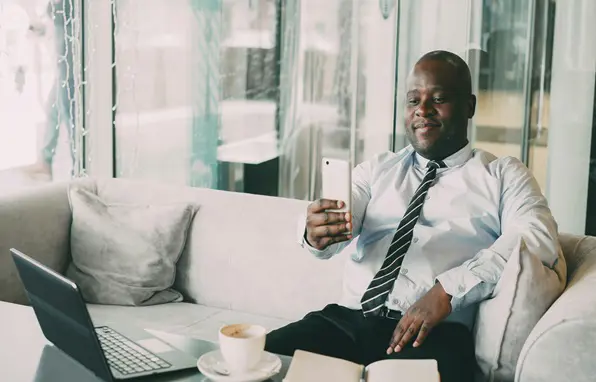How to budget effectively
11 AUGUST 2023
How important is a budget anyway? An effective budget is a powerful tool that can unlock the future potential of your money. How you spend and save your money today will have a direct impact on your future financial wellness. That means of course that, in a very real sense, the power to control your future is in your hands.
An effective budget is a powerful tool that can unlock the future potential of your money. How you spend and save your money today will have a direct impact on your future financial wellness. That means of course that, in a very real sense, the power to control your future is in your hands.
To give yourself, and your money, the best possible chance at future financial wellness, start doing these five things today:
PLAN FOR EXPENSES THAT DON’T OCCUR EVERY MONTH
Setting up your budget to account for regular monthly expenses is fairly straightforward and for the most part effective in managing your money. However, something that is often overlooked or neglected is to also allocate money in your budget for expenses that may only occur every quarter, or even only once or twice a year. Such expenses may include annual car licencing and servicing, dentist visits and subscription fees to associations or publications.
To accommodate these, split the amount in twelve and put away that portion every month to ensure that when it comes time to pay, you already have the money saved to cover it.
BUDGET WITH YOUR SPOUSE
One of the most contentious issues that commonly arises when couples get married is how to manage the money. Not only are two people with distinct personalities and approaches to money now on the same team, they must agree on how the money should be allocated in a joint household budget.
Communication is key, and honesty is the best policy. Talk about your combined financial position, discuss your financial goals for the future and agree on how you will approach debt. Only once you have discussed all these matters and reached an agreement should you put your combined household budget together. Once the budget is set, remember to regularly and jointly monitor your progress.
KEEP A FUND FOR UNFORESEEN EXPENSES
Not to be confused with irregular payments, unforeseen expenses are those expenses that occur unexpectedly, such as a big traffic fine, emergency medical treatment or even an unexpected job-loss. The only thing these expenses have in common is that they occur unexpectedly and, more often than not, at the worst possible time.
The best way to provide for these unforeseen expenses is with an emergency fund. Such a fund is essentially a safety net in a time of financial strain or loss. Ideally, an emergency fund should, over time, hold the equivalent of three to six months’ worth of living expenses. While this may seem unattainable now, with some discipline and a clear plan it is quite achievable. Just remember to replenish it should you have to use the money.
DON’T SWEAT THE SMALL STUFF
A good bit of advice for anyone when it comes to monitoring your spending is to cut down on all the small amounts you spend daily. Each small purchase adds up and may, over time, equate to a staggering amount of money.
However, a sometimes-overlooked area of potential saving is your large expenses. Do the maths and see if, for example, it doesn’t make sense to buy a smaller car, which is not only lighter on fuel but will likely also cost less in monthly instalments. Scrutinise your regular big expenses and see what you can do to save money. You’ll be surprised.
KEEP WORKING AT YOUR BUDGET
Putting together a household budget should not be a once-off exercise. To really make it work, you need to review and tweak it on a regular basis, adjusting it to meet changing financial needs. Just as your income is not likely to stay constant over time, your expenses are also sure to change. Failing to accommodate these changes and ensure that they are reflected in your budget, will not only mean that your budget is less effective, over time it will become obsolete.



